Amphibian Genomics Consortium
The Amphibian Genomics Consortium (AGC) is an international initiative that strives to bring together people with an interest in using genomic tools to better understand amphibian ecology, evolution, and conservation.

This consortium was launched in March 2023. Our objective is to build upon the efforts of existing genomics consortia such as the Vertebrate Genomes Project (VGP), Earth BioGenome Project (EBP), and Darwin Tree of Life (DToL) by supporting amphibian-focused sequencing projects, and other types of genomics-driven research and applications.
Read on to find out more about our aims and how you can get involved with us.
Our aims
Increase the coordination and generation of amphibian genomics resources including reference genomes, population re-sequencing, transcriptomes, and other reduced-representation sequencing techniques.
Make amphibian genomics resources more accessible and useful for functional genetics research and for conservation practitioners.
Provide information and training resources to amphibian biologists including databases, webinars, seminar series, and computational genomics workshops.
Increase cross-disciplinary collaboration among amphibian genomicists, organismal biologists, and conservation practitioners.

The AGC will be hosting the full day symposium:
"Beyond the reference: genomics for amphibian ecology, evolution, and conservation” during the World Congress of Herpetology in August 2024.
For more information
Please email María Torres-Sánchez or Joana Sabino-Pinto or
Join the Amphibian Genomics Consortium
Are you interesting in joining the AGC? Get in touch and tell us a little about yourself and what you'd like to "gain" from working with us. As a new organisation, you have a unique opportunity to influence how we grow and what we become.
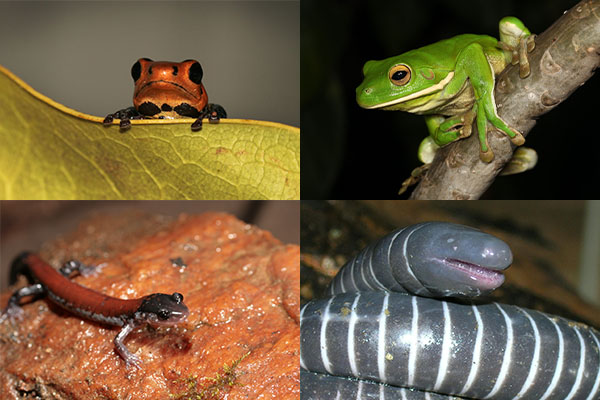
Find out more about the founding members and board members of the Amphibian Genomics Consortium.
Directors
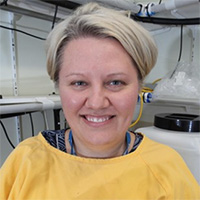
Tiffany A. Kosch, Director
Tiffany A. Kosch started her career studying chytridiomycosis in Peruvian amphibians in Kyle Summers lab at East Carolina University. Since obtaining her PhD, Tiffany has worked as a postdoctoral fellow at Massey University, James Cook University, and Seoul National University where she has studied the evolution and origin of the chytrid pathogen and the genetic basis of chytrid resistance.
She is now working as a research fellow at the University of Melbourne in Australia where she uses genomics and targeted genetic intervention to develop methods to restore Australian frogs threatened by chytrid to the wild.
Email: tiffany.kosch@unimelb.edu.au
Twitter: @TAKosch
Google Scholar
Webpage: https://findanexpert.unimelb.edu.au/profile/775927-tiffany-kosch#
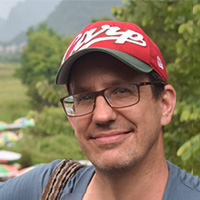
Andrew J. Crawford, Co-director
Dr Andrew Crawford spent his formative years as a herpetologist in David Wake's lab at UC Berkeley and later obtained his Ph.D. in Evolutionary Biology from the University of Chicago with Marty Kreitman. He is currently an Associate Professor of Biological Sciences and Scientific Director of the Museo de Historia Natural at the Universidad de los Andes in Bogotá, and serves on the Board of Directors of Fulbright Colombia.
Andrew is a founding member of the Genome 10K consortium and currently serves as Taxon Chair of Amphibians and on the Executive Council of the Vertebrate Genomes Project (VGP). He is also on the Executive Council of the Earth BioGenome Project (EBP).
Email: crawfordaj@gmail.com
Twitter: @CrawfordAJ
Google Scholar
Webpage: https://dna.ac/cv.html

María Torres-Sánchez, Co-director
María Torres-Sánchez is an early career researcher from Galicia, Spain, currently working as a María Zambrano postdoctoral fellow at the Complutense University of Madrid. She is broadly interested in amphibian ecology and evolution, and has worked with caecilians, salamanders, and frogs using mainly genomic tools.
Email: torressanchez.maria@gmail.com
Twitter: @TorresSanchezM
Google Scholar
Board members
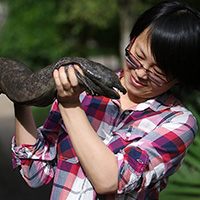
Dr Jing Che
Dr Jing Che is a Professor and PI from the Kunming Institute of Zoology, Chinese Academy of Sciences. Her overall research interest is to explore and understand the patterns and mechanisms (geographic, ecological and genetic factors) of herpetofaunal diversity forming, and other important evolutionary issues involving their phenotypic adaptation.
Email: chej@mail.kiz.ac.cn
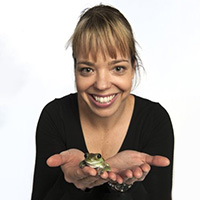
Dr Jodi Rowley
Dr Jodi Rowley is a conservation biologist obsessed with amphibians. After obtaining a degree in Environmental Science (Honours) at the University of New South Wales, Rowley completed her Ph.D. at James Cook University. Now based at the Australian Museum and the University of New South Wales in Sydney, Australia, she has led many expeditions in search of amphibians in Australia and Southeast Asia. Jodi is the Lead Scientist of FrogID, a national citizen science project developed by the Australian Museum that has collected over 850,000 records of frogs across Australia since 2017.
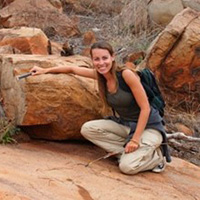
Dr Jessica da Silva
Dr Jessica da Silva is a Senior Scientist at the South African National Biodiversity Institute whose research integrates evolutionary genomics and other scientific disciplines to inform wildlife management and conservation. Much of her research to date has focused on herptiles, with a particular emphasis on the temporal and spatial genetic monitoring of South Africa’s endemic and threatened amphibians. She is also heavily involved in developing and testing genetic diversity indicators for national reporting, as well as translating this scientific knowledge into effective conservation policy.
Email: j.dasilva@sanbi.org.za
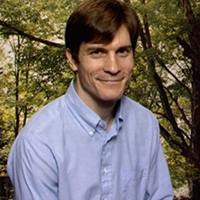
Dr Kyle Summers
Dr Kyle Summers is an evolutionary biologist who studies reproductive strategies (e.g., parental care) and defensive strategies (e.g., aposematism) in Neotropical poison frogs.
Email: summersk@ecu.edu
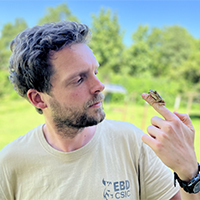
Dr Christoph Liedtke
Dr Christoph Liedtke is a researcher currently based at the Doñana Biological Station in southern Spain. He is interested in the evolution of amphibian life history and development as well as the systematics and biogeography of African amphibians. He uses genomic approaches primarily to study gene-environment interactions that shape plastic phenotypes and development.

Dr Maximina Yun
Dr Maximina Yun earned a BSc in Molecular Biology from the University of Buenos Aires and a PhD in Genetics and Biochemistry from Cambridge University at the MRC-Laboratory of Molecular Biology, where she focused on the mechanisms underlying genome stability. During her doctoral studies she became interested in the control of cellular plasticity and thus joined Jeremy Brockes’ lab (University College London) where she begun to explore the mechanisms underlying regeneration of complex structures using salamanders as model organisms. Since September 2017 she is a group leader at CRTD-Center for Regenerative Therapies TU Dresden and Max Planck Institute of Molecular Cell Biology and Genetics, Germany. Her current research leverages the axolotl (Ambystoma mexicanum) and the Iberian ribbed newt (Pleurodeles waltl) systems to uncover fundamental principles of regeneration and ageing.
Email: maximina.yun@tu-dresden.de
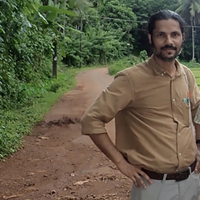
Dr Ramachandran Kotharambath
Dr Ramachandran Kotharambath is Assistant Professor in the Department of Zoology, Central University of Kerala, India, and a Scientific Associate in the Vertebrates Division of Natural History Museum, London, UK. Dr Kotharambath is also the VAJRA Indian Lead Investigator in the Indo-UK DST VAJRA (Dept. of Science and Technology Visiting Advanced Joint Research, Govt. of India) project. His current research interests include the skeletal anatomy, behaviour, ecology, and systematics of caecilian amphibians of the Western Ghats. Along with international colleagues, Dr Kotharambath has described four new species of rare amphibians, the caecilians Gegeneophis primus and Gegeneophis tejaswini from the Western Ghats of peninsular India and the neotropical salamanders Oedipina villamizariorum and Oedipina ecuatoriana from the Ecuadorian Andes in South America, and rediscovered the Western Ghats Ichthyophiid caecilian Ichthyophis longicephalus. Dr Kotharambath currently teaches Animal Behaviour, Academic Scientific Writing, Evolution, Field Biology, Herpetology, Taxonomy and Systematics.
Email: ram@cukerala.ac.in
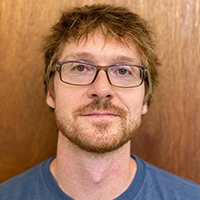
Dr Dan Portik
Dr Dan Portik is currently a bioinformatics scientist at PacBio, a long read DNA sequencing company. He performs research on metagenomics, methylation, and genome assembly, and develops new tools and workflows.
Previous to industry, Dan received his PhD from the Museum of Vertebrate Zoology at UC Berkeley. He was enthusiastic about biogeography, population genetics, and phylogenomics, with a particular fondness for African tree frogs.
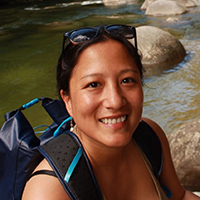
Dr Siu-Ting
Dr Siu-Ting is a Peruvian herpetologist currently based at Queen's University Belfast, UK. Her research combines different fieldwork and -omic techniques and developing bioinformatic methods to address ecological and evolutionary questions in tropical amphibians and reptiles. She has been a Marie Curie fellow and is currently a Scientific associate at the Natural History Museum in London. She serves as a member of the IUCN amphibian specialist group, Secretary for the Systematics Association in the UK and as Science Director for the Instituto Peruano de Herpetología.
Email: k.siuting@qub.ac.uk
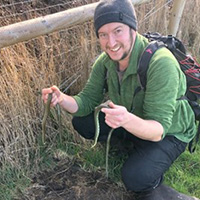
Dr Simon Maddock
Dr Simon Maddock is an evolutionary ecologist and conservation biologist working mostly with tropical amphibians (anurans and caecilians) and reptiles (snakes and lizards) as well as UK amphibians. He currently works as a Lecturer in Ecology and Evolution at Newcastle University, UK, holds a Scientific Associate position at the Natural History Museum in London, and is an Associate Member of the Island Biodiversity and Conservation Centre at the University of Seychelles.
Email: s.t.maddock@gmail.com